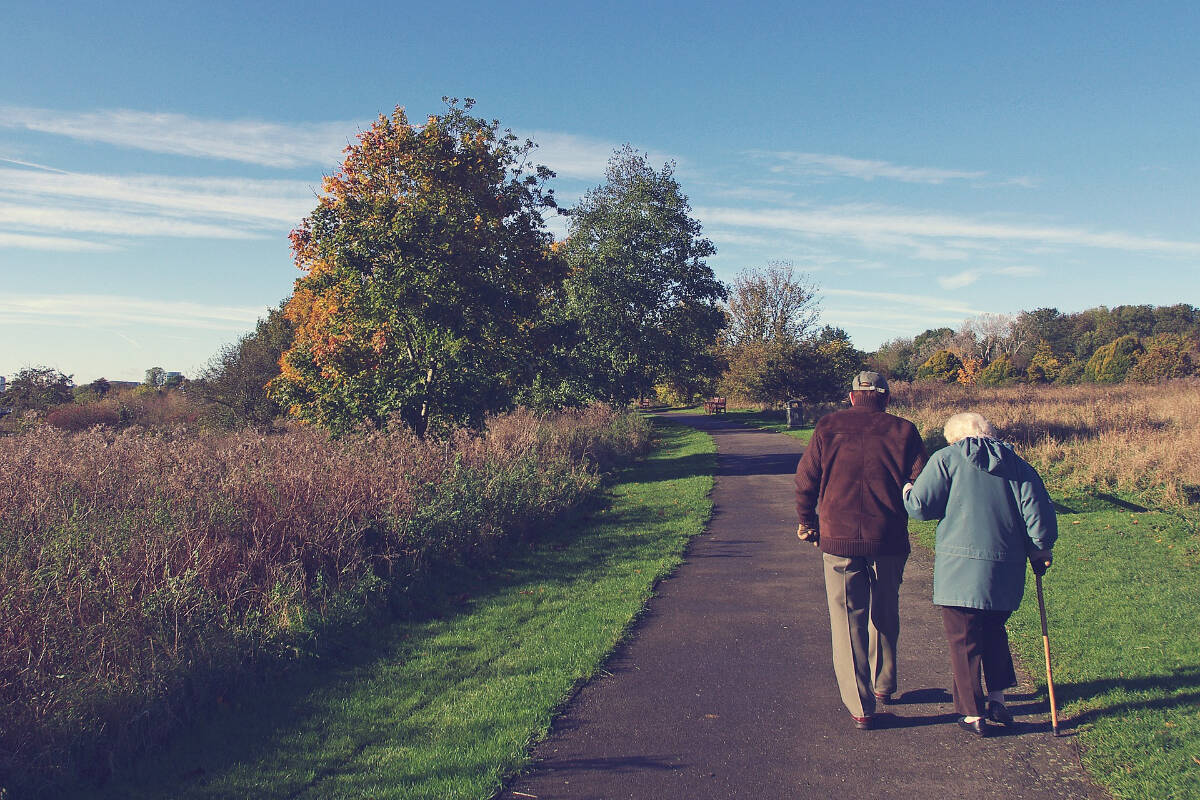A lack of resources and supports in rural B.C. is making ageing in those areas particularly challenging for seniors, a new report has found.
The Office of the Seniors Advocate says people who are aged 65 or older and living in rural regions have worse access to health care, lower average incomes and fewer options for long-term care or affordable housing.
BC Seniors Advocate Isobel Mackenzie said the inequity is particularly concerning considering the proportion of seniors who live outside of B.C.’s urban centres. According to her 46-page report released on Thursday (Feb. 15), seniors make up 25 per cent of B.C.’s rural population compared to 19 per cent in urban areas.
And, as the province’s population ages, that proportion is set to grow. By 2032, seniors are projected to make up 29 per cent of the rural population, but just 21 per cent of the urban population.
Mackenzie said she travelled throughout the province to understand how seniors fare in different regions and found the resilience of those living in rural areas inspirational. However, she said it is clear that strength is borne of necessity.
“Living in rural B.C. means you are more isolated from the services and supports found in urban centers and you need your family, friends and neighbors to help fill the gaps,” Mackenzie said in the report.
One of the primary gaps is in access to health care.
The report found 17 per cent of rural seniors do not have a family doctor or nurse practitioner, compared to 13 per cent of urban seniors. The services that do exist in rural areas often operate on more limited schedules as well, meaning seniors there don’t always have somewhere to go if they need help on an evening or weekend.
There is also a 70 per cent lower rate of acute care beds per 100,000 people in rural B.C.
This means when rural seniors need serious care or surgery, they often have to travel to urban centres. The report found B.C.’s Travel Assistance Program, which offers funds for such purposes, is too limited and that the Hope Air program, which can fully cover travel and accommodation costs, is not well known.
Rural seniors who need support at home also face challenges. They are 24 per cent less likely than urban seniors to receive home care and, if they do, get fewer hours of support.
Income and access to housing are further issues.
The report found rural seniors make an average of $43,592, while urban ones make an average of $49,857. Affordable long-term care beds and housing are therefore important, but few options exist.
According to the report, there are 55 per cent fewer publicly subsidized long-term care beds per 100,000 people in rural B.C. than urban B.C. The wait time to get into one in rural areas is also about twice as long.
The availability of subsidized seniors housing is also low. There are about 70 per cent fewer units per 100,000 people in rural B.C., the report says.
Mackenzie made seven recommendations to the province to address these gaps, including developing and implementing strategies on rural seniors housing, rural health, rural seniors home and community care, and rural transportation. She is also asking the government to create and implement a long-term care and assisted living plan based on equity, to improve upon and better promote the Travel Assistance Program and Hope Air, and to create a ministry or minister devoted to rural B.C.
“We must ensure seniors, regardless of whether they live in rural or urban B.C., receive equitable levels of support to allow them to age well in their home communities.”
READ ALSO: B.C. inks $733-million Aging With Dignity deal, Canada’s first
READ ALSO: B.C. appoints new seniors advocate

